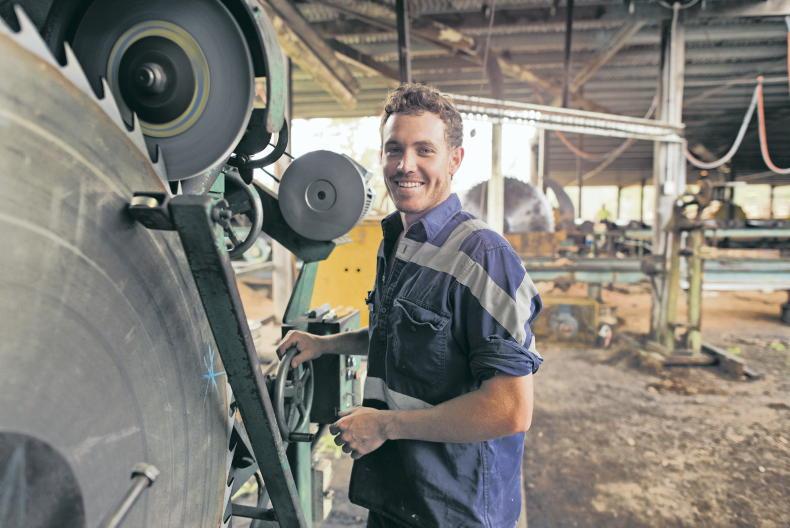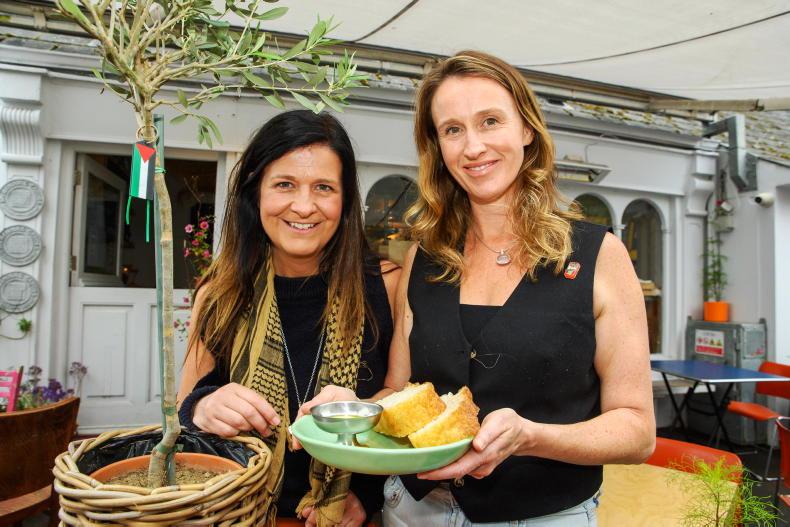Mediation, by definition, means to “create agreement by helping to settle a dispute between two parties”.
Basically it is to act as a “go between” where there are conflicting views or issues.
Mediation is a voluntary process. It forms the basis of conflict resolution that allows opposing parties an opportunity to address their issues in a confidential and safe environment. Mediators have the skills and techniques necessary to help people resolve their disputes.
Mediation has many benefits, in particular in avoiding further public litigation or legal costs. It can help solve disputes both personally (such as marriage break ups) and professionally (conflicts with other farmers or colleagues).
It can be effective in single issues such as disagreements over a boundary ditch with a neighbouring farmer, or multi-party conflicts such as disagreement between siblings over a farm succession plan.
Mediation can provide innovative ideas or solutions when parties are willing but stuck. It can also be useful as a preventive intervention early in a conflict situation.
Whatever the reason, it is well worth exploring the mediation process to allow better communication, to help dilute the outstanding issues, defuse any emotions and outline areas of agreement. It can be a great means of avoiding costly legal fees.
Based on statistics, mediation has an average 80% success rate. (Homs Solicitors, homs.ie)
According to the The Mediators’ Institute of Ireland (MII) – the professional association for mediators in Ireland – the most common areas of conflict affecting rural Ireland are:
COVID-19 restrictions causing co-parenting disputes, family disputes, employee and contract disputes.Succession planning disputes causing conflict between siblings and/or parents. Marriage break ups involving the family farm.Disagreements with farming neighbours. All of these scenarios can benefit from the mediation process – where a facilitator provides support to resolve the difficult situation. If a consensus cannot be found the legal route may be the only answer.
Where to find a mediator
The MII is a not-for-profit organisation, the purpose of which is to use quality mediation to resolve disputes.
It has a fully developed database of mediators available across the country, which have various areas of expertise.
Farm succession
I spoke with an accredited mediator at Succession Ireland, Claire O’Keefe. Claire said that in order to start any good communication regarding farm succession “open conversations are key” and that “assumptions and expectations need to be outlined”.
She reiterated that fairness and transparency are necessary to avoid any hurt or pain at a later stage.
Claire mentioned it is necessary to deal with facts, and that a promise is not a fact.
“A time where a farm owner states, ‘Someday this will all be yours’ to their son or daughter working on the farm will not necessarily be the case or fact eventually. Not outlining the succession plan and not putting a will in place will only lead to future conflict, ending in mediation or worst still, the courts.”
According to the most recent ifac farm survey 40% of farmers have no will made, and 71% have no succession in place.
Financial Services and Pensions
Ombudsman (FSPO)
Marital breakdown is not the only conflict where mediation can be useful. In 2020, the FSPO published an overview of complaints received in 2019. Through mediation, 70% of the cases were resolved (983 cases), with complainants receiving redress and/or compensation – 215 cases during investigation and 201 cases through legally binding decisions issued. The FSPO deals with a wide range of complaints relating to insurance, banking, credit facilities and investments.
The president of the MII Margaret Considine said: “The fact that 983 complainants had their cases resolved through mediation shows how efficient mediation can be for the disputants and for state agencies involved in managing complaints.”
Some examples of the settlements reached where a legally binding decision was not necessary:
A payment of €28,000 in interest rate adjustment and €18,000 in compensation was sanctioned where a mortgage owner was incorrectly classified as an investment property owner and who was not afforded the protections of the Mortgage Arrears Resolution Process (MARP).An arrears write-off of €15,000, a goodwill payment of €5,000, and the recapitalisation of the remaining arrears of €25,000, which remained on the loan balance where the interest charged was in dispute.A payment of €20,000 to a couple whose holiday home received €57,000 worth of damage due to a burst water pipe. Only €14,500 of the claim had been paid prior to mediation. Conclusion
By proactively communicating, and outlining the conflict, whatever the case, mediation can play a part in providing workable solutions in many cases.
Case study: marriage breakdown
Jim, a beef farmer, and his wife of eight years, Michelle, decided to separate. They have no children. Jim owns the farm of 70ac. The farm business makes a small profit each year. Michelle has her own income and works irregular hours.
They both own the family home jointly (no mortgage, valued at €150,000). They both want to continue to live in the family home and cannot agree on this. Jim gets advice from his solicitor who advises they both must attend mediation to try to find a solution.
The mediator asks each of them the reason for staying in the home. Jim’s reason is the house is beside the farm and it makes complete sense to live there. Michelle wants to stay close to her family and friends.
Following the mediation process it is agreed Michelle will move out and Jim will make a substantial financial payment to her. Jim takes out a mortgage on the home to fund the separation agreement. Michelle has no further claim to the farm or house.
Mediation in this case worked, but if Jim had been unable to get mortgage approval it might have been a different story.
Read more
Money Mentor advises on banking and personal finance
Money Mentor: pensions and farm succession planning
Mediation, by definition, means to “create agreement by helping to settle a dispute between two parties”.
Basically it is to act as a “go between” where there are conflicting views or issues.
Mediation is a voluntary process. It forms the basis of conflict resolution that allows opposing parties an opportunity to address their issues in a confidential and safe environment. Mediators have the skills and techniques necessary to help people resolve their disputes.
Mediation has many benefits, in particular in avoiding further public litigation or legal costs. It can help solve disputes both personally (such as marriage break ups) and professionally (conflicts with other farmers or colleagues).
It can be effective in single issues such as disagreements over a boundary ditch with a neighbouring farmer, or multi-party conflicts such as disagreement between siblings over a farm succession plan.
Mediation can provide innovative ideas or solutions when parties are willing but stuck. It can also be useful as a preventive intervention early in a conflict situation.
Whatever the reason, it is well worth exploring the mediation process to allow better communication, to help dilute the outstanding issues, defuse any emotions and outline areas of agreement. It can be a great means of avoiding costly legal fees.
Based on statistics, mediation has an average 80% success rate. (Homs Solicitors, homs.ie)
According to the The Mediators’ Institute of Ireland (MII) – the professional association for mediators in Ireland – the most common areas of conflict affecting rural Ireland are:
COVID-19 restrictions causing co-parenting disputes, family disputes, employee and contract disputes.Succession planning disputes causing conflict between siblings and/or parents. Marriage break ups involving the family farm.Disagreements with farming neighbours. All of these scenarios can benefit from the mediation process – where a facilitator provides support to resolve the difficult situation. If a consensus cannot be found the legal route may be the only answer.
Where to find a mediator
The MII is a not-for-profit organisation, the purpose of which is to use quality mediation to resolve disputes.
It has a fully developed database of mediators available across the country, which have various areas of expertise.
Farm succession
I spoke with an accredited mediator at Succession Ireland, Claire O’Keefe. Claire said that in order to start any good communication regarding farm succession “open conversations are key” and that “assumptions and expectations need to be outlined”.
She reiterated that fairness and transparency are necessary to avoid any hurt or pain at a later stage.
Claire mentioned it is necessary to deal with facts, and that a promise is not a fact.
“A time where a farm owner states, ‘Someday this will all be yours’ to their son or daughter working on the farm will not necessarily be the case or fact eventually. Not outlining the succession plan and not putting a will in place will only lead to future conflict, ending in mediation or worst still, the courts.”
According to the most recent ifac farm survey 40% of farmers have no will made, and 71% have no succession in place.
Financial Services and Pensions
Ombudsman (FSPO)
Marital breakdown is not the only conflict where mediation can be useful. In 2020, the FSPO published an overview of complaints received in 2019. Through mediation, 70% of the cases were resolved (983 cases), with complainants receiving redress and/or compensation – 215 cases during investigation and 201 cases through legally binding decisions issued. The FSPO deals with a wide range of complaints relating to insurance, banking, credit facilities and investments.
The president of the MII Margaret Considine said: “The fact that 983 complainants had their cases resolved through mediation shows how efficient mediation can be for the disputants and for state agencies involved in managing complaints.”
Some examples of the settlements reached where a legally binding decision was not necessary:
A payment of €28,000 in interest rate adjustment and €18,000 in compensation was sanctioned where a mortgage owner was incorrectly classified as an investment property owner and who was not afforded the protections of the Mortgage Arrears Resolution Process (MARP).An arrears write-off of €15,000, a goodwill payment of €5,000, and the recapitalisation of the remaining arrears of €25,000, which remained on the loan balance where the interest charged was in dispute.A payment of €20,000 to a couple whose holiday home received €57,000 worth of damage due to a burst water pipe. Only €14,500 of the claim had been paid prior to mediation. Conclusion
By proactively communicating, and outlining the conflict, whatever the case, mediation can play a part in providing workable solutions in many cases.
Case study: marriage breakdown
Jim, a beef farmer, and his wife of eight years, Michelle, decided to separate. They have no children. Jim owns the farm of 70ac. The farm business makes a small profit each year. Michelle has her own income and works irregular hours.
They both own the family home jointly (no mortgage, valued at €150,000). They both want to continue to live in the family home and cannot agree on this. Jim gets advice from his solicitor who advises they both must attend mediation to try to find a solution.
The mediator asks each of them the reason for staying in the home. Jim’s reason is the house is beside the farm and it makes complete sense to live there. Michelle wants to stay close to her family and friends.
Following the mediation process it is agreed Michelle will move out and Jim will make a substantial financial payment to her. Jim takes out a mortgage on the home to fund the separation agreement. Michelle has no further claim to the farm or house.
Mediation in this case worked, but if Jim had been unable to get mortgage approval it might have been a different story.
Read more
Money Mentor advises on banking and personal finance
Money Mentor: pensions and farm succession planning









SHARING OPTIONS